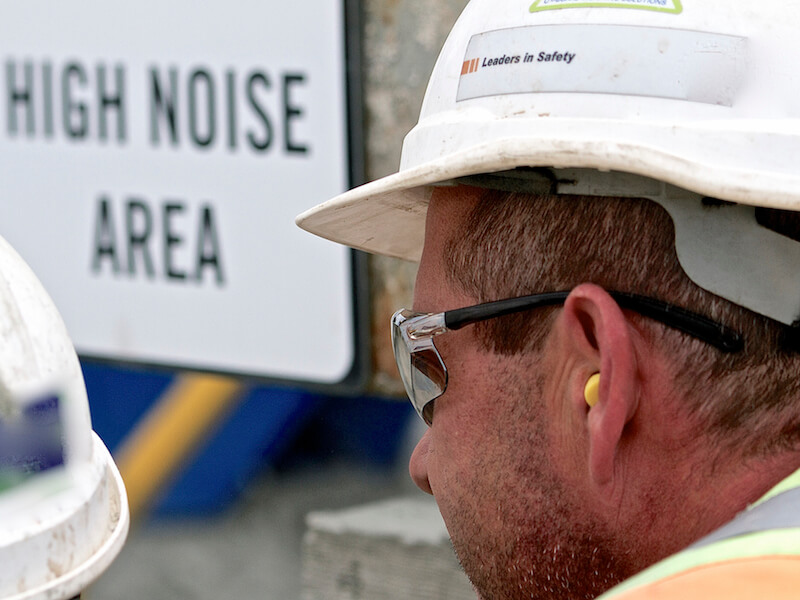
Your hearing can be damaged by a loud workplace and it can also affect your concentration. Even modest noise, when experienced for many hours a day, can start to weaken the health of your hearing. For this reason questions like “what hearing protection should I use?” are worth asking.
Many of us probably didn’t even know there were numerous levels of hearing protection. But when you take a moment to think about it, it makes sense. A truck driver won’t need the same amount of protection that a jet engine mechanic will.
Levels of Hearing Damage
The standard rule of thumb is that 85 decibels (dB) of sound can start harming your ears. Putting sound into context regarding its decibel level and how dangerous it is, isn’t something the majority of us are used to doing.
When you’re sitting in your car in city traffic, that’s about 85 decibels. No biggie, right? Actually, it’s pretty significant. It becomes a big deal after numerous hours. Because the duration and frequency of exposure are extremely important when it comes to damaging exposure to noise.
Common Danger Zones
It’s time to consider ear protection if you’re exposed to noise at 85 dB or more for 8 hour days. But there are a few other important thresholds to take note of. If you’re exposed to:
- 90 dB (e.g., lawnmower): Anything above four hours is considered damaging to your hearing.
- 100 dB (e.g., power tools): Your hearing will be damaged when exposed to this noise level for 1 hour a day.
- 110 dB (e.g., leaf blower): Anything above fifteen minutes is considered damaging to your hearing.
- 120 dB (e.g., rock concert): Any exposure can cause harm to your hearing.
- 140 dB (e.g., jet engine): This level of noise will lead to immediate damage and probably pain to your ears.
You’ll want the hearing protection you wear to be sufficient to bring the volume below that 85 dB level, particularly if you’re exposed to those sounds for any amount of time.
Make Sure Your Hearing Protection Fits Comfortably
The effectiveness of ear protection is quantified by something called a Noise Reduction Rate, or NRR. The higher the NRR, the quieter your world will be (temporarily).
It’s really important that you select hearing protection with a high enough NRR to keep you safe (and your workplace will usually make guidelines about what level might be appropriate).
Comfort is also an important component to take into consideration. It’s very important that your hearing protection is comfortable to wear if you want to keep your hearing safe. Why? Because if your hearing protection is uncomfortable, you won’t wear it.
Hearing Protection Choices
You’ve got three basic options to choose from:
- In-ear earplugs
- Earmuffs.
- Earplugs that sit just outside of the ear canal.
There are advantages and disadvantages to each type of protection, but the majority of your hearing protection choices will come down to personal preference. For some individuals, earplugs are irritating, so they’d be better served with earmuffs. Other people may value the put-them-in-and-forget-them approach of earplugs (obviously, you won’t want to forget them for too long… you should take them out at the end of your workday. And clean them).
Consistently Use Protection That Works Best For You
Comfort is important because any lapse in your hearing protection can lead to damage. If you remove your earmuffs for ten minutes because they’re heavy and scratchy, your ears can suffer over the long run. This is why hearing protection that you can leave in for the whole workday is the best option.
You’re ears will remain happier and healthier if you choose the correct level of hearing protection for your situation.
Call Today to Set Up an Appointment
References
https://www.cdc.gov/nceh/hearing_loss/what_noises_cause_hearing_loss.html
